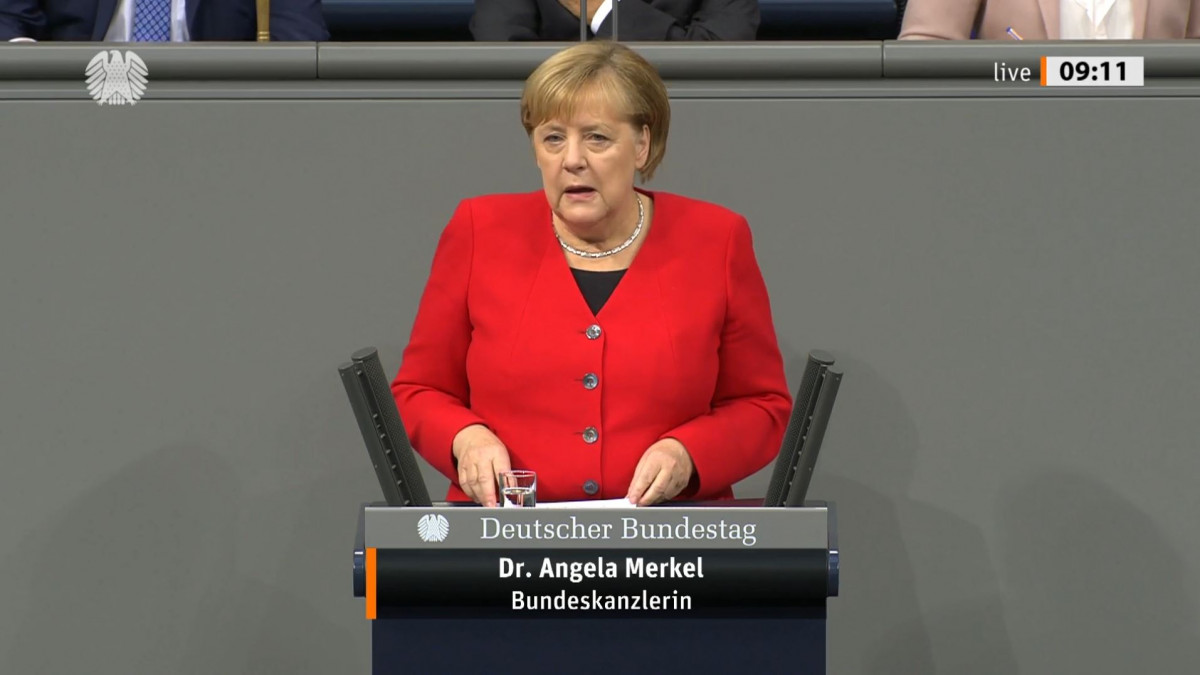Merkel criticises EIB decision to ban gas lending
German Chancellor Angela Merkel (CDU) has criticised the European Investment Bank’s (EIB) decision to ban funding for natural gas projects by the end of 2021. As Germany exits both nuclear and coal, natural gas was needed as a bridging technology in the energy transition, said Merkel in a parliamentary speech on the 2020 federal budget.
“That is why I find it rather complicated that the European Investment Bank decided to no longer finance gas as a bridging technology. I don’t think that this is right,” Merkel told parliamentarians. The German government had supported the EIB’s decision in November.
Alexander Reitzenstein, climate and energy policy advisor at the European non-profit organisation for policy transformation E3G, called Merkel’s remarks “a shocking and surprising statement” given the German support a little more than a week earlier.
Before supporting them in the end, the German government had initially not agreed with EIB plans to purge its loan books of fossil fuels, including natural gas, by 2020, media had reported. Economy minister Peter Altmaier had emphasised that natural gas as a “bridging technology” would “remain an important element of Germany’s energy supply system for many years.” Germany owns 16 percent of the EIB's shares.
While the chancellor criticised the bank's decision in Berlin, president-elect of the European Commission Ursula von der Leyen – a close Merkel-ally and CDU party member – lauded the “progress” the bank made “to strengthen its role as EU climate bank.” In her speech in the European Parliament ahead of the vote to confirm the new European Commission, von der Leyen said if there was one area where the world needed EU leadership, it was on protecting the climate. “Climate change is about all of us. We have the duty to act and the power to lead,” she said.
Indicating differing views within the German government, Jörg Kukies, state secretary in the SPD-run finance ministry, called the EIB decision an act of "climate courage" as the bank had decided to go ahead and pressure the member states into a decision. However, Kukies said on a panel at the annual conference of business initiative Foundation 2° (Stiftung 2°) in Berlin on 27 November courage was now also necessary to push back against "renaissance fantasies" for nuclear power, which was "anything but sustainable".
“Who if not we should show that it is possible to counter climate change?”
The chancellor named climate one of two main issues that are crucial for Germany’s future economy, prosperity and jobs – the other being digitalisation – and highlighted Germany’s role: “If a country like Germany represents one percent of the world’s population and causes two percent of CO₂ emissions and possesses the best technologies, who if not we should show that it is possible to counter climate change?”
Her government had decided a comprehensive climate action package in September, which has been widely criticised as not sufficient.
The proposals are not enough to reach 2030 climate targets, said Merkel advisor and head of the Potsdam Institute for Climate Impact Research (PIK) Ottmar Edenhofer at Foundation 2° conference. The economist said he expects the pressure from the new European Commission on Germany to do more will increase, as the EU itself plans to ramp up ambitions.
Merkel also warned of the urban-rural division: “If we as politicians don’t help those in the city with affordable living and those in rural areas who talk about what they gain from wind power expansion aside from a 220-metre-high turbine right next to them, then we will not succeed” with the energy transition, said Merkel. She said after having agreed the difficult issue of basic pension, the government will also find a solution to the dispute about minimum distance rules for wind turbines from the nearest settlements.


